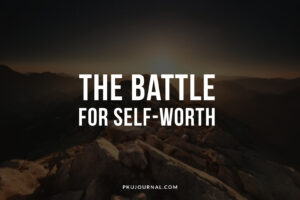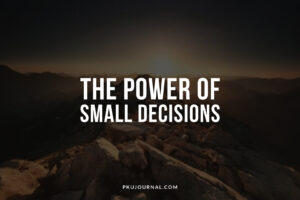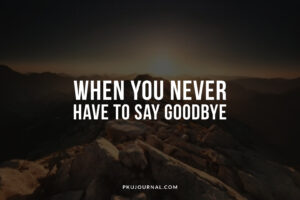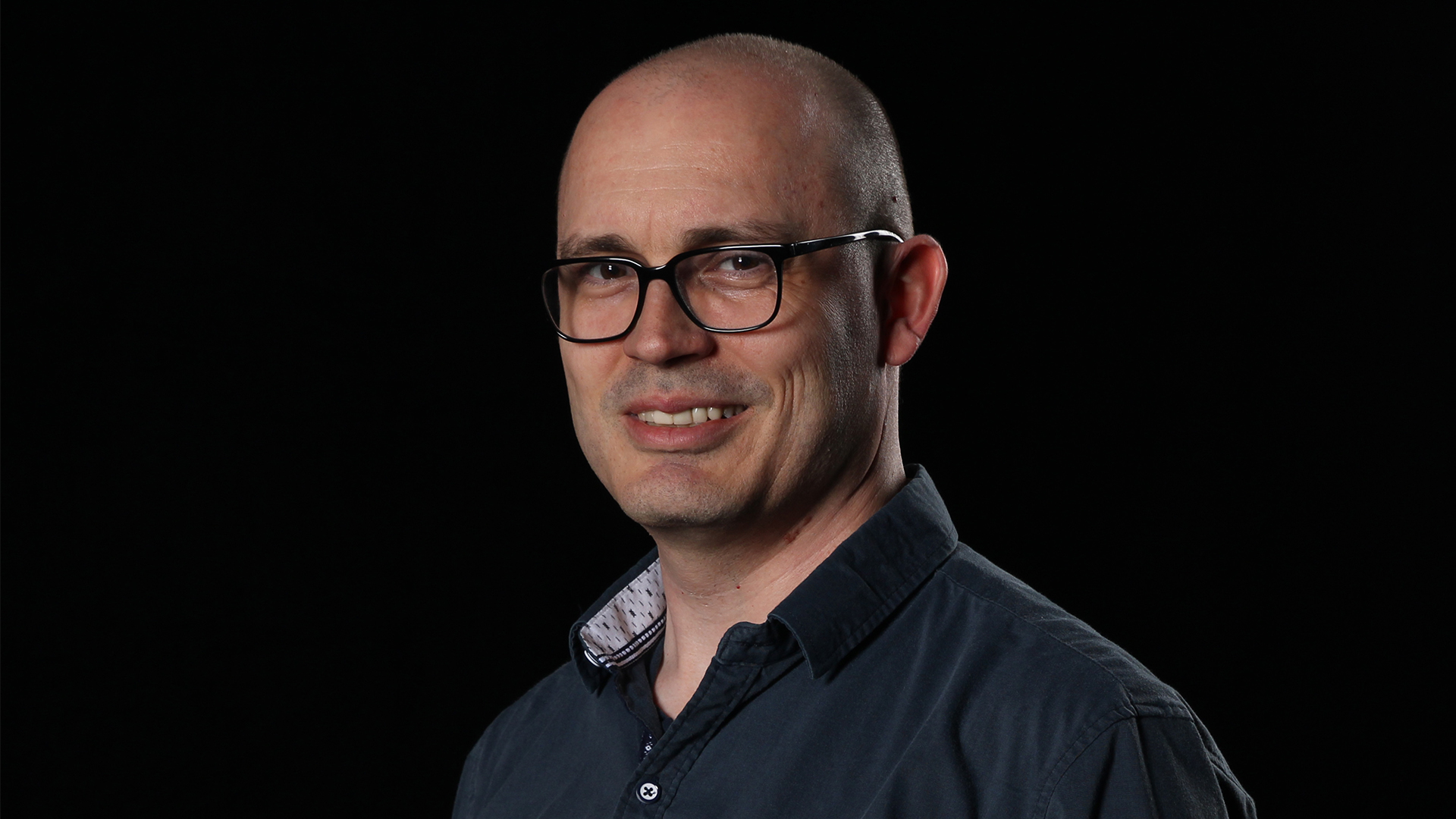Sometimes it takes confronting your darkest moments to embrace living with a mission. This is the story about how I discovered my mission in life, and it begins one morning when I was on my way to work and almost died.
Living With A Mission
“What connects with people is you connecting with yourself.”
I heard that a few years ago, and I love it. It guided me when I created this podcast. And it helps me stay focused on what this show is all about.
It’s one person’s journey of self-discovery. I open up and share my life with you in a way that I haven’t always done in my advocacy work… and hopefully, it helps you think about your rare disease life and discover something about yourself.
Sometimes, when I’m working on these stories, I have to review old journal entries for ideas. Some events are recent, others decades in the past. But regardless, memory is elusive. We remember something one way only to realize later it happened another way. But sometimes a memory sticks with us. Maybe it’s a happy memory. Maybe, it’s a traumatic one. Either way, we recall it in vivid detail. Sometimes, when we don’t want to.
Today’s story is one I recall frequently. Actually, every time I drive. So… I think about it every day. I didn’t have to consult my journal to remember details. But writing this episode helped me make sense of it.
This story begins with a pivotal moment in my life. A moment that I knew I would remember forever… if I survived.
The Other Side of Life
You see life differently when you’ve worked in the field.
I describe my years as a TV photojournalist like this: You’re a professional bystander. You’re there to watch something unfold, document it, and then share that with your community. But you also see a lot that you can’t put on TV. At least… not ethically.
I’ve shared those experiences before so I won’t recount them now. Let’s just say that tragedies happen every day, and… the things some people are capable of… I still don’t have the words. That knowledge—that experiential awareness of another side of life—it’s isolating.
Those are the memories I’ve struggled with for over 20 years. I’m not exaggerating. I hate nighttime because that’s when the memories return. Specific sights and sounds of people that I can’t forget.
I’m not trying to make more of this than it is. I know my memories, but I can’t imagine what veterans, first responders, or emergency room workers have to deal with.
Those memories are about what I’ve witnessed. But there were other times when slight changes in circumstances could have put me in great danger.
Last year I shared that I once rolled up to a crime scene just minutes after the armed suspect had fled on foot. I arrived before the police. And I often think about what would have happened if I arrived a few minutes earlier. Or if the suspect had returned. It happened at a gas station, and I think about it every time I’m at the pump.
Another time I was headed in to work at the TV station… and I left my apartment just a few minutes before there was a shooting downstairs… and then… I came home to cover the story. The police told me that the shooter had climbed a tree so he could shoot down into the apartment… and was either there already when I walked out to my car… or got there right after I left.
Standing in Red Square in Moscow, January 2011. I had been in Siberia filming a video for the prior two weeks.
And I was in Russia when the Domodedovo airport in Moscow was bombed. That was on January 24, 2011, and I had passed through the airport a few days before. It happened in the international arrivals area where I had stood for over an hour.
Even though I was on the other side of the country, and not in danger at all, it was surreal to know that I had just been there… standing where the bomb went off. I’m not exaggerating… I stood in what became the blast zone… and hearing that the original plan was to detonate a few days before, possibly when I was there… you know… it makes you think.
But today I’m thinking about a different experience that, looking back, helped me make a change in my life and discover my mission…
One morning in 2012 when I was on my way to work… And almost died.
The Morning My Priorities in Life Changed
I don’t know how many car accidents I covered in the field. Hundreds? Thousands? Some days there were more than others, but I probably averaged one per day… for almost 7 years. I’ve seen just about every way twisted metal can injure or kill.
And so, this one morning in 2012 when I was on my way to work… I was keenly aware of what can happen to someone when there’s a serious car accident.
I was driving to work in heavy traffic. But it wasn’t slow, crawling, bumper-to-bumper traffic. The road was full, and everyone was driving fast.
I was going about 60 miles per hour in the left-hand lane of a local highway. Someone changed lanes and almost hit my car. It was obvious they didn’t see me. And I couldn’t just slam on the brakes. They were inches away from me. And someone was right behind me. All I could do was veer left, off the road.
But the road sloped down on my left. If I went too far off the road, I knew what would happen. I would flip my car. And since I was going about 60 miles per hour, I knew what that meant. It wouldn’t just be an accident. It could be a fatal rollover.
Now, it’s commonly said that when you’re in a situation like this time seems to slow down. I had heard that, but I had never experienced it. Well, it’s true.
I thought I was going to die.
Because when I veered off the road and felt my car almost go down the slope, I lost control of the vehicle. And that’s when time slowed.
What I’m about to describe took place over a few seconds. But it felt like forever. It was the weirdest sensation.
As I went off the road, I knew death was imminent. Or at least serious injury. But the other car was well ahead of me now, so I turned the wheel and tried to get back on the road. Somehow, my car didn’t go down the slope, it didn’t flip, and instead I was back on the road… but I started spinning out of control.
And so, in that moment when my car was spinning out… and I thought I was about to die… I thought about the car accidents I had covered. And I knew what could happen.
As I tried to regain control, the car spun to the left, then spun back to the right, and then I spun all the way around and across to the other side of the highway… where I finally slowed down and came to a stop. The highway was busy with early morning traffic, but everyone had slowed down safely.
My car didn’t have a scratch.
When things finally calmed down, that’s when I had a panic attack. I realized what had just happened. But during the moment? When I thought death was imminent? It’s hard for me to explain my reactions during it all. Because I had stayed calm in the moment, remained focused, and regained control of the car.
And I lived.
But I wouldn’t be the same. I felt like I had confronted death and lived. And from that moment on, my priorities changed.
Discovering My Mission
Maybe you and I have interacted with each other on social media. Maybe we know each other in real life. Or maybe you just know of me through my advocacy work or this podcast. Regardless, perhaps you’ve realized this by now… but I don’t see life the way many people do. I don’t have the same priorities.
I don’t follow sports.
I don’t like going to parties.
And even though I enjoy entertainment, it’s not a huge priority. I don’t organize my life around it.
Don’t get me wrong. I’m not judging those who enjoy any of those things. But I recognize what I value in my life. And that does not mean that I have to expect the same of others.
We each have our own interests, our own spheres of influence, and our own paths in life.
In my case, I used to enjoy those things… but then I was exposed to a world where tragedies happen every day. Where life turns sharply, and one moment of celebration and joy is followed by another of grief and heartache. Where you think about life and death constantly because you see that fine line that separates them daily. Where you live in the suburban, sheltered life that many of us reside in, but each day you take a trip to the other side… and see the cruelties people can be capable of as they commit unspeakable atrocities.
Even though I had left that world behind, I was struggling to fit in. And my priorities changed.
At this point in life, I had left broadcast journalism and had a different job. But four years had passed and I realized that it wasn’t suited for me. I was just coasting through life.
A few months earlier my adventures in PKU advocacy had begun. I was getting a taste of what it meant to live again. But, I was still in that transitional period of knowing I wanted to make a change in life, but not quite ready to make the leap.
And then… this happened.
It forced me to wake up. To make a change.
A few months later I left that job and worked for myself for the next three years. That opened up opportunities to travel for PKU advocacy.
And along the way… as I discovered what it meant to live again… to be comfortable with different priorities because of my life experiences…
I discovered my mission in life.
My Mission in Life
My mission is to tell stories for the PKU, newborn screening, and rare disease communities. Stories of perseverance, determination, and hope. Stories that remind us that we are not alone.
Stories that reveal what I believe with all my heart…
That no matter what we are going through in life, no matter how dark it gets… there is always hope, and life is beautiful.
I’ve shared about my time away from advocacy. For two years I isolated myself in my pain. You can hear about those experiences in season one. Episode one is called “Regaining Hope: My Journey to Rare Disease Advocacy”. It’s my mental health story, and in it I open up and reveal that pain—some that is related to my rare disease life and some that is just from lived experience, but has a direct impact on how I cope with my rare disease and the daily treatment it requires.
And in episode 2—“Rare Disease Advocacy and Burnout”—I shared why that pain caused me to isolate myself from my rare disease community for two years.
When I came back to this world of advocacy in 2022, I struggled to find my way again. For over a year, while I was publicly exploring themes of hope and perseverance on my blog and this podcast, I was still fighting a private battle for hope.
I wasn’t sure that being so vulnerable and transparent was the right choice for me. I still didn’t have my confidence back—a sense of purpose and direction that drove me in my previous work in advocacy.
That confidence… that sense of purpose… eluded me… until October of 2023.
Waking Up To A New Vision
Let’s be honest. Most days we are consumed by our daily routines. We have responsibilities and we do our best to fulfill them. And often our sense of wonder at the beauty and fragility of life fades. Things seem mundane.
But every now and then we wake up, and an experience changes us forever.
Well, October 17, 2023 was the beginning of one of those transformational moments for me.
That’s the day my journey to the 2023 ESPKU conference began. ESPKU stands for the European Society for PKU and Allied Disorders Treated as Phenylketonuria. The conference was held in Birmingham in the United Kingdom and I documented my journey in two episodes of this podcast: “Finding Your Rare Disease Community” and “One Global Community”.
I’m not going to recount those experiences here. Those stories are long but feature voices in the PKU community from around the world.
What I want to share now is what that experience meant to me personally.
Until that trip… Even though I was active again in advocacy and reconnected with my community here in the US… I still felt unsure of myself. Something was missing, and I couldn’t figure out what it was.
A sense of hope was returning to my life. But while at the conference I spoke with so many others in the PKU community, and we had deep conversations about life with our rare disease.
And I felt even more hope.
But also… A new realization deep in my heart. Something that’s become a vision for how I see my community and what drives me in my mission.
Rare disease life has no borders. We are one global community. And we are all in this together.
Helping People is the Mission
I’ve been telling stories a long time. And the thing is… it’s not just communication for me. It’s not like an essay where you have a point to argue or message to convey.
Storytelling is discovery.
For the audience, it’s discovering a new way to see the world. But for the storyteller it’s self-discovery. You have an idea that you want to explore, communicate, and release to the world… and watch it resonate with others and take a life of its own… apart from your involvement. But what you’re really exploring is your own heart and mind.
And so, when I tell stories for the PKU, newborn screening, and rare disease communities, privately I’m relating everything to my own experiences.
When I was at ESPKU, and interviewed 26 people in my rare disease community, I thought back to when I was so isolated—before my experiences in advocacy when I was completely alone in my rare disease life.
It didn’t just make me grateful. It didn’t just wake me up to a vision I used to have for my community. It reminded me of my mission… my passion in life.
No one should be alone in their rare disease life. Everyone deserves to feel valued and loved.
And while I express my mission in terms of storytelling, that’s not really the mission. Storytelling is just a vehicle… podcasts, blogs, films… they are just forms of expression.
Ultimately, my mission is to help people in our community… to help them feel valued. To love them. And let them know that they aren’t alone.
And for the first time in years I feel something… something beyond hope. Beyond gratitude.
Determination.
I am alive. I have a mission.
And while I don’t know how much time I have left on this Earth—none of us do—I know how to spend the time I have.
With the people I care for… fighting for the cause we believe in… Dedicated to my mission of helping others feel valued… and loved.
Life Tests Us
“Your greatest pain can become the source of your greatest strength.”
I’m a firm believer that we all go through a crucible. It might happen early in life. For some, it continues throughout life. And for others, it might not come until much later on.
But eventually, life happens to all of us. And it tests us.
That is when we discover ourselves. Who we really are. What we are made of.
When you learn to live like this… to embrace your crucible as inevitable… a defining moment… and you take time to discover your mission in life…
When you learn to live based on what you believe… your core values…
When you learn the thing that motivates you like nothing else, gives you a sense of purpose and direction, and is the reason you wake up in the morning…
When you discover this… you’re transformed. No one can take it away.
But it takes work. Reflection. Self-examination.
It takes continually revisiting this over and over and over… to keep the awareness of the beauty and fragility of life… the determination to embrace every moment fully awake and alive…
You can’t do that if you’re living according to the always-on, 24/7 culture of modern society.
This… takes… time.
Time… is our crucible.
We are always changing. Always being tested.
And always learning… how to never, never, never give up.











Leave a Reply